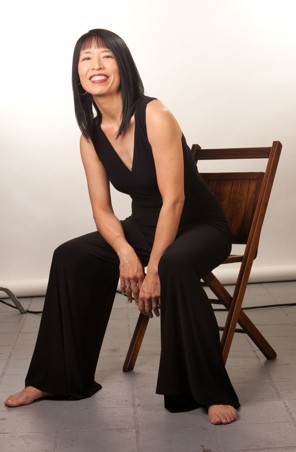By Stephen Brookes • The Washington Post • July 15, 2012
Pianist Gloria Cheng is one of the most adventurous interpreters of contemporary music around, and in a spectacular recital on Friday at the University of Maryland’s Gildenhorn Recital Hall — consisting almost entirely of works written in the 21st century — she showed just how surprising, eclectic and emotionally engaging the contemporary piano repertoire can be. The evening, which is part of the William Kapell International Piano Competition and Festival, ranged from the elegiac to the downright funny. John Cage’s deceptively simple “Dream” (1960) was paired with Kaija Saariaho’s shimmering, glissando-drenched “Prelude” (2006) to make a quiet opening to the recital.
The evening, which is part of the William Kapell International Piano Competition and Festival, ranged from the elegiac to the downright funny. John Cage’s deceptively simple “Dream” (1960) was paired with Kaija Saariaho’s shimmering, glissando-drenched “Prelude” (2006) to make a quiet opening to the recital.
But Cheng soon shifted gears. Harrison Birtwistle’s playful “Betty Freeman: Her Tango” (2001) is “a cheeky little piece,” as Cheng noted, although she played it with an odd solemnity, as if explaining a joke rather than telling it. The more prickly side of new music was represented by Pierre Boulez, whose “Une Page d’Ephemeride” (2005) proved that the old firebrand — now in his late 80s — is as abrasive and unapologetic as ever. And five of the “Twelve Preludes” (2007) by Pulitzer Prize-winning composer Bernard Rands confirmed that admirable, immaculate music is still being produced in the halls of academia.
Some of the most captivating music of the evening, though, came not from the big names but from younger composers. Steven Andrew Taylor’s luminous “Satellite” (2002-03) was a delight — down to the surprising little sweep of her fingers across the piano wires that closes the work. And “Starlight” (2009) by David Liptak evoked with quiet lyricism the beauties of the night sky. Esa-Pekka Salonen’s “Dichotomie” (2000) was a brilliant tour de force from a fascinating composer more widely known as a conductor, and Cheng turned in a performance that can only be described as breathtaking.
But it was Oliver Knussen’s “Ophelia’s Last Dance” (2009-10) that most deeply revealed the pianist’s interpretive gifts. A tender, even elegiac piece, it unfolded like an improvisation on a dance-like theme, at turns searching, fragmented, passionate and awash in grief. Cheng seemed to understand it to her bones and played it with dignity, eloquence and grace.